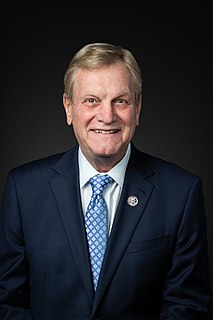A Quote by Jeff Van Drew
Disclosure of the full monthly costs that consumers pay is the first step to ensuring that cable companies stop taking advantage of consumers.
Related Quotes
If old consumers were assumed to be passive, then new consumers are active. If old consumers were predictable and stayed where you told them, then new consumers are migratory, showing a declining loyalty to networks or media. If old consumers were isolated individuals, then new consumers are more socially connected. If the work of media consumers was once silent and invisible, then new consumers are now noisy and public.
Please, please, stop referring to yourselves as "consumers." OK? Consumers are different than citizens. Consumers do not have obligations, responsibilities and duties to their fellow human beings. And as long as you're using that word "consumer" in the public discussion, you will be degrading the quality of the discussion we're having. And we're going to continue being clueless going into this very difficult future that we face
Consumers will purchase high quality products even if they are expensive, or in other words, even if there are slightly reasonable discount offers, consumers will not purchase products unless they truly understand and are satisfied with the quality. Also, product appeal must be properly communicated to consumers, but advertisements that are pushed on consumers are gradually losing their effect, and we have to take the approach that encourages consumers to retrieve information at their own will.
We were the ultimate consumers of the thing, and we thought, "Every college kid is going to go berserk. High school kids - it will introduce them to music they didn't know about. This is going to be a phenomenon." Plus, it seemed like it was insider-y, yet it was available to everyone. I thought, "Cable companies are going to be snatching this up." You think about the dreck that is on so many cable companies, of course they're going to love this. And we were just crushed that nobody cared.
No longer do companies study consumers' psyches only by asking people what they think about technology and how they use it. Now they conduct observational research, dispatching anthropologists to employ their ethnographic skills by interviewing, watching and videotaping consumers in their natural habitats.

































